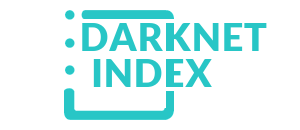The darknet, also known as the dark web, is a concealed section of the internet that's inaccessible via standard search engines. You can only access it using special software, settings, or authorization. This area comprises websites and content that are purposely kept hidden from public view.
Accessing darknet requires using Tor Browser, a special web browser that routes your internet traffic through a global network of relays managed by volunteers. This way, it becomes very difficult to trace which websites you're visiting, and these sites won't know where you are located.
When visiting the dark web, use a secure browser like Tor, do not reveal any of your personal information, and don't open suspicious files or links to stay safe.
The Darknet is often utilized for secure communication, discreet information or file sharing, anonymous research without identity exposure, and occasionally for engaging in illicit activities. It is also recognized for hosting underground black markets(darknet markets), whistleblowing platforms, and discussion boards that champion freedom of speech.
While accessing Darknet Markets themselves is typically not against the law in most places, engaging with illicit goods within them is generally considered a crime. On the other hand, some people might visit Darknet Markets for lawful purposes such as research, journalistic work, or simply to explore online communities. It's essential to know the local laws regarding online activities, and be cautious when using these platforms to avoid any potential issues.
Cyberattack in Sweden leaks over 1.5 million people's data on the darknet
Swedish authorities confirmed on Tuesday that a recent cyberattack on an IT systems provider has led to the leak of sensitive personal data belonging to over 1.5 million individuals. The breach had involved the exposure of data on the darknet which has raised serious concerns about privacy and cybersecurity.
Swedish media reports indicate that the attack has affected a wide range of entities including town and city councils, private businesses and government organizations. This breach is huge as it impacts nearly 15% of Sweden’s total population of 10.6 million people.
The attack targeted Miljodata, an IT systems provider, over the weekend of August 23-24. According to the Swedish prosecution authority, this breach resulted in the theft and subsequent publication of personal information. Prosecutor Sandra Helgadottir confirmed that the stolen data, including names, addresses, and contact details, was leaked on the darknet.
Helgadottir stated that the group "Datacarry" has claimed responsibility for the attack. Investigations are currently underway to track down the individuals behind this significant cyber breach. At this point, there is no evidence to suggest the involvement of a foreign nation.
Reports from Swedish media say that the hackers demanded 1.5 Bitcoin (approximately $170,000) as a ransom threatening to release the stolen data unless their demands were met. As we can see the attackers followed through on their threat and the personal details were posted on the darknet for anyone to access.
The breach has affected multiple sectors, including local government bodies. The Swedish Authority for Privacy Protection revealed that by the end of August, they had received 250 complaints from affected individuals. At least 164 municipalities and four regional authorities were impacted by the hack.
Private companies were also among the victims. Major businesses such as Volvo, SAS, and GKN Aerospace reported that their data had been compromised in the attack. Notably employees in the city of Gothenburg were particularly affected with many reporting unauthorized access to their personal information.
